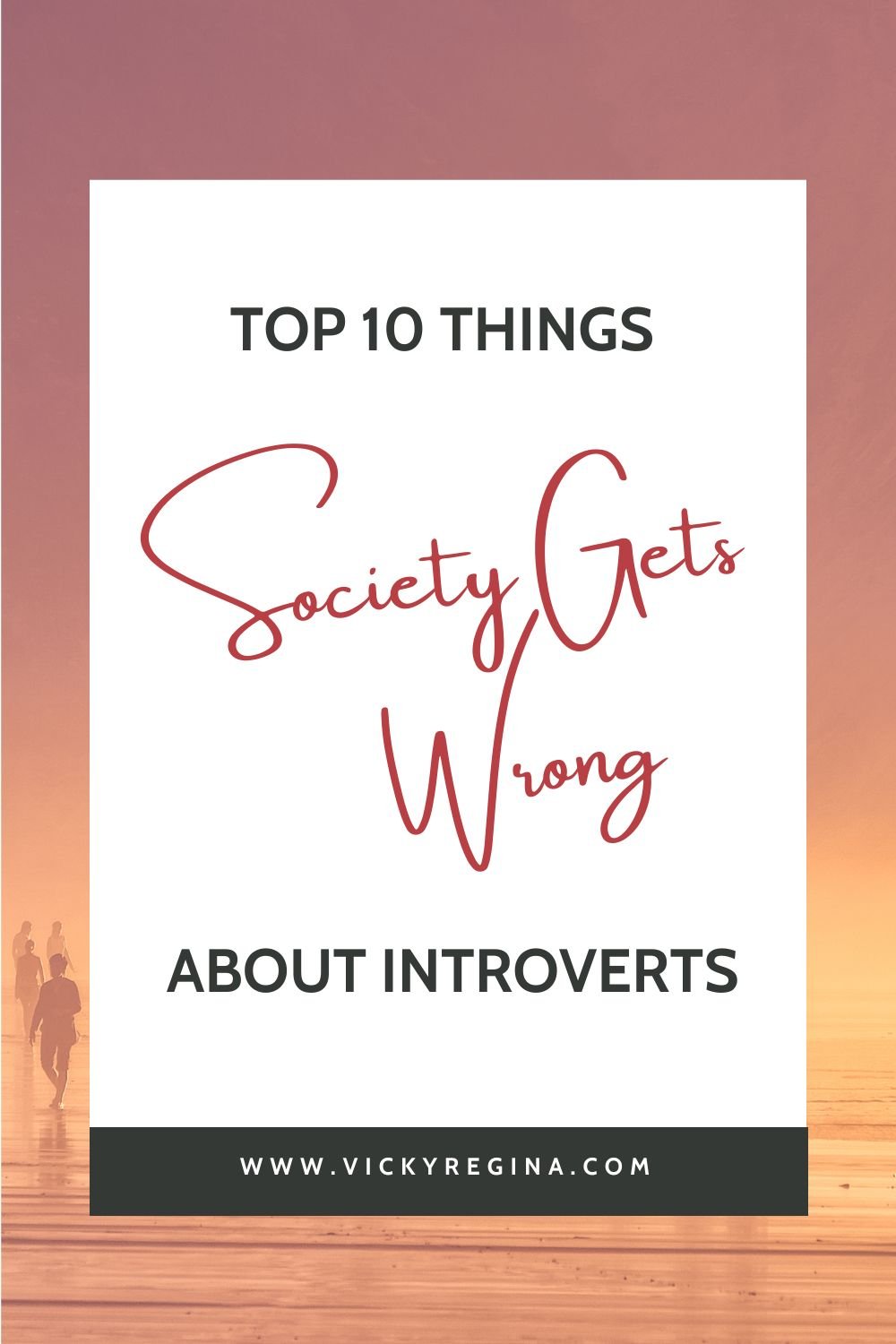Top 10 Things Society Gets Wrong about Introverts
Gilmore Girls is one of my favorite shows because I adore the small-town charm and quick banter between the characters.
Since I live near the towns that inspired the fictional town of Stars Hollow, I always felt connected to the show and characters. However, in most of the episodes, I resonant the most with Rory (except the final season when it completely went off the rails, but that's a different story for another day!).
In one particular episode, the story showcases how misunderstood introverts are and how misaligned expectations prevent them from thriving.
Rory is escaping into the pages of one of her many books while enjoying her lunch break. Unlike many introverts, Rory is confident in who she is, so she exhibits no qualms with sitting alone in the cafeteria and cracking open her book of choice.
The headmaster notices her daily habit and feels concerned about what he views as antisocial behavior, so he calls her into his office to demand that she stop sitting alone at lunch and be more involved with others.
Rory, frustrated by the headmaster's lack of understanding or concern for her preference on how she spends her lunch break, reluctantly agrees to join other tables to get to know her classmates.
The next day, she randomly picks a group, plops down in a seat, and proceeds to engage the other girls begrudgingly.
Without realizing it, she picked a social "club" that goes back multiple generations (so one doesn't just sit with them at lunch without an invitation!).
After joining them for several days, they decide to initiate her into the club (which involves "kidnapping" her in the middle of the night for an initiation ceremony!).
Rory soon finds herself standing in the headmaster's office (in her pajamas!) when the headmaster suddenly enters, busting the group for breaking into the school. As she's faced with the headmaster's disappointment in her participating in this type of activity and with suspension on the line, Rory loses it!
She reminds him that the ONLY reason she was sitting with them at lunch was that he instructed her to do so. She angrily tells him she was perfectly fine reading during lunch, but he instructed her to stop.
After recognizing that truth, he allows her to use her lunch break as she chooses. In the next scene, Rory is happily engrossed in her book when another classmate sits across from her, smiles at Rory, and pulls her own book out of her bag to read in companionable silence.
This story perfectly shows how society misunderstands introverts and, in many cases, views the behavior of introverts as flawed.
If there was a greater understanding that introversion is not a weakness, I believe there would be very different social structures in schools, offices, etc. The current system, unfortunately, is outdated and not inclusive for introverts.
Because introverts are so often misunderstood (even amongst introverts!), I want to shine a light on the primary misconceptions. By understanding where people get things wrong, you have the beautiful opportunity to reframe your perspective on introversion!
Why introverts are misunderstood…
The idea of introverted and extroverted personalities was first introduced around 1910 by Carl Jung, and Hans Eysenck further developed the concepts in the mid-1900s.
Both psychologists based their descriptions on how stimulation leads to satisfaction. Extroverts need a lot of stimulation, whereas introverts need less.
The concepts of introversion and extroversion simply define where you source your energy (externally for extroverts and internally for introverts).
With differing preferences for recharging energy come various characteristics that align with the contrasting methods. For example, extroverts tend to be more outgoing and seek social situations since this fuels them. Conversely, introverts tend to be quieter and don't need as much social interaction.
Unfortunately, Western culture has prioritized and celebrated extrovert characteristics throughout the past hundred years, so there's a general lack of understanding of what it means to be introverted.
Negative stereotypes underlie these misconceptions to the point where even most introverts view their innate characteristics from a negative perspective.
Social interactions, pop culture, schools, corporate culture, etc., reinforce these stereotypes and misconceptions. Unfortunately, this misguided social conditioning leads introverts to reject the very qualities that add value to society as they try to fit into the one ideal that they feel is acceptable.
Furthermore, extroverts who lack awareness of these differences miss opportunities to incorporate introverts in a way that brings their gifts to the table. These misconceptions need to be proven incorrect to create an introvert-inclusive society.
Top 10 misconceptions about introverts...
While there are many misconceptions about introverts, these are the top beliefs that paint introversion with a negative brush...
Introverts are shy and awkward
Introverts are depressed
Introverts are lonely
Introverts are antisocial / snobby
Introverts aren't good with conversation
Introverts are quiet
Introverts aren't confident
Introverts would be happier if they were more extroverted
Introverts aren't friendly
Introverts don’t like people
In general, introversion is regarded as undesirable, and extroversion is the only acceptable way to be. But introverts can be happy, popular, and confident!
One of the top misconceptions I hear from introverts is believing they're being more extroverted when around friends or family or when they feel happy and confident. This implies when they're feeling unhappy, awkward, or quiet, they're being introverted. Being happy and confident with specific people points to being comfortable with them and not being more extroverted.
The problem with this misconception is that it reinforces negative stereotypes.
What introversion actually means…
The degree to which you are introverted or extroverted falls on a scale. That means no one is 100% introverted or extroverted. While some may be on the far end of the spectrum, everyone contains aspects of both.
Where you source your energy (internally or externally) and the degree to which those environments recharge your internal batteries determines where you fall on the scale.
That's it!!
That means introverts can be social and enjoy parties. Introverts can be quite chatty and engaging when it comes to conversations. Introverts can also be very confident, happy, and fulfilled in their lives, which typically happens when they embrace their introverted nature, establish boundaries, and don't try to be something they're not (i.e., an extrovert!).
Regarding depression or social anxiety, extroverts experience these just as much as introverts, so it's not correlated to where you fall on the introversion-extroversion scale.
What society celebrates extroverts for being are things introverts can authentically be, too; they just need more solo time to recharge.
It can feel uncomfortable navigating this transition because you're going against everything you've been taught. It's also in contrast to all the "evidence" you see currently supporting your extrovert-conditioned beliefs. But as you retrain your thoughts and open to what's actually true, your brain will jump on board to show you new evidence to support this new perspective.
If this is something you'd like to open up to in your life, you're in luck! This is exactly what I help my clients achieve, so I invite you to schedule a complimentary call with me to explore options for working together, so you embrace your introverted nature and become the intentional creator in YOUR life!

